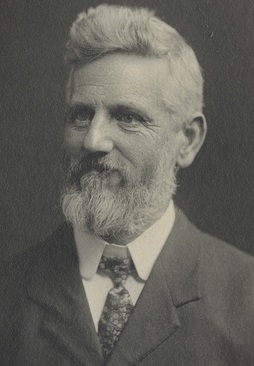
The premier of South Australia is the head of government in the state of South Australia, Australia. The Government of South Australia follows the Westminster system, with a Parliament of South Australia acting as the legislature. The premier is appointed by the governor of South Australia, and by modern convention holds office by virtue of their ability to command the support of a majority of members of the lower house of Parliament, the House of Assembly.

The South Australian House of Assembly is one of the two chambers of the Parliament of South Australia, the other being the Legislative Council. It sits in Parliament House in the state capital, Adelaide.

The Parliament of South Australia is the bicameral legislature of the Australian state of South Australia. It consists of the 47-seat House of Assembly and the 22-seat Legislative Council. General elections are held every 4 years, with all of the lower house and half of the upper house filled at each election. It follows a Westminster system of parliamentary government with the executive branch required to both sit in parliament and hold the confidence of the House of Assembly. The parliament is based at Parliament House on North Terrace in the state capital of Adelaide.

The 1968South AustralianState election was held in South Australia on 2 March 1968. All 39 seats in the South Australian House of Assembly were up for election; 38 of the 39 contests were won by candidates from Australia's two major political parties. The incumbent Labor Party South Australia led by Premier of South Australia Don Dunstan and the Liberal and Country League led by Leader of the Opposition Steele Hall) both won 19 seats. The sole independent candidate to win a race, Tom Stott of the Ridley electorate, joined with the LCL's 19 seats to form a coalition government that held a 20 to 19 majority, thus defeating the Dunstan Labor government.

Colonial elections were held in South Australia from 9 April to 23 April 1890. All 54 seats in the South Australian House of Assembly were up for election.

The 1905 South Australian state election was held on 27 May 1905. All 42 seats in the South Australian House of Assembly were up for election. The incumbent conservative government led by Premier of South Australia Richard Butler in an informal coalition with the liberals was defeated by the United Labor Party (ULP) led by Leader of the Opposition Thomas Price. Each of the 13 districts elected multiple members, with voters casting multiple votes.

The 1906 South Australian state election was held on 3 November 1906 to elect all 42 seats in the South Australian House of Assembly. The seat of Northern Territory went to an election on 10 November.
Yatala is a former electorate of the South Australian House of Assembly located within the cadastral Hundred of Yatala. It was one of the original Assembly districts in 1857, abolished in 1902.
The Finniss ministry was the 1st Ministry of the Government of South Australia, led by B. T. Finniss. It commenced on 24 October 1856 with the introduction of responsible government in South Australia, and the nomination by Governor Richard Graves MacDonnell of Finniss, the appointed Chief Secretary, as the first Premier of South Australia. The ministry operated for several months prior to the 1857 colonial election, which would elect the first House of Assembly. The first House of Assembly was elected in March 1857 and met in April. The Finniss ministry was succeeded by the Baker ministry on 21 August 1857, following their defeat on a confidence motion in the new House.
Colonial elections were held in South Australia on 9 March 1857. All 36 seats in the South Australian House of Assembly, and all 18 seats in the Legislative Council were up for election.
Colonial elections were held in South Australia from 19 March to 21 April 1887. All 52 seats in the South Australian House of Assembly were up for election.
Colonial elections were held in South Australia from 8 April to 23 April 1884. All 52 seats in the South Australian House of Assembly were up for election.
Colonial elections were held in South Australia from 8 April to 27 April 1881. All 46 seats in the South Australian House of Assembly were up for election, along with six of the 18 seats in the South Australian Legislative Council.
Colonial elections were held in South Australia from 29 March to 30 April 1878. All 46 seats in the South Australian House of Assembly were up for election.
Colonial elections were held in South Australia from 14 December to 27 December 1871. All 36 seats in the South Australian House of Assembly were up for election.
Colonial elections were held in South Australia from 28 March to 21 April 1870. All 36 seats in the South Australian House of Assembly were up for election.
Colonial elections were held in South Australia from 6 April to 7 May 1868. All 36 seats in the South Australian House of Assembly were up for election.
Colonial elections were held in South Australia from 20 February to 13 March 1865. All 36 seats in the South Australian House of Assembly were up for election.
Colonial elections were held in South Australia from 10 November to 28 November 1862. All 36 seats in the South Australian House of Assembly were up for election.
Colonial elections were held in South Australia from 9 March to 3 April 1860. All 36 seats in the South Australian House of Assembly were up for election.




